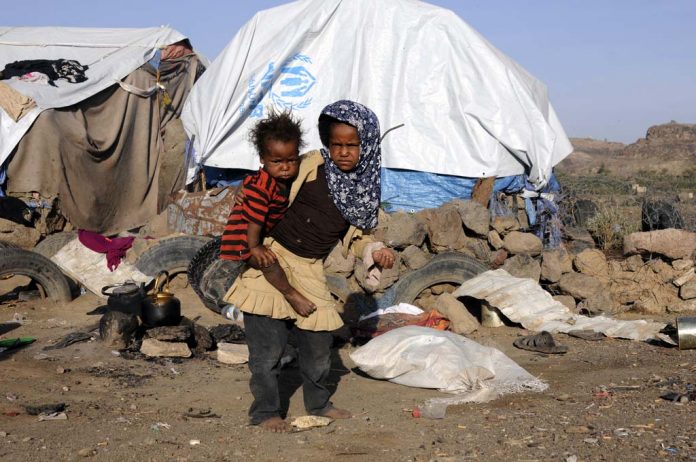
The World Health Organization said that about 65 percent of the population of Yemen (about 19.5 million people) is susceptible to malaria, with half of the health facilities suspended and the rest partially working, with essential medicines and medical equipment scarce.
This came in a report published by the organization on its website, on Yemen’s struggle against malaria and the difference that community volunteers are making to limit the spread of the disease.
In the report, the organization indicated that approximately 65% of the total population (about 19.5 million people) are at risk of infection with human malaria, which is one of the most common vector-borne diseases in Yemen.
She added that 20.4 million Yemenis live in areas at risk of malaria transmission, according to the global report on the disease in 2020.
It is estimated that “up to one million new cases of malaria plague Yemen each year.”
The organization stated that it “established, in partnership with the King Salman Center for Humanitarian Aid and Relief, the Malaria Control and Prevention Project to support the control and prevention of malaria and dengue vectors in Yemen.”
In response to this threat, WHO is supporting volunteer health workers by providing rapid diagnostic tests and medicines, building capacity through basic training on detection and treatment of malaria cases, and educating communities on the importance of prevention.
The organization stated that “half of the health facilities in Yemen that are fully or partially functioning, still lack qualified paid health staff, in addition to the scarcity of essential medicines and medical equipment.
She indicated that “Yemen is still surrounded by the spread of malaria and other diseases transmitted by vectors.”
In the report, she emphasized “the importance of strengthening and scaling up malaria control mechanisms and integrated vector management efforts in communities across the country.”


















